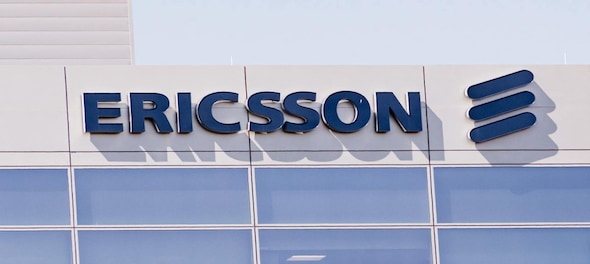
India witnessed one of the fastest deployments of the 5G network with 2.7 lakh sites within nine months and Ericsson was at the forefront, working closely with telecom operators like Reliance Jio and Bharti Airtel.
In its earnings for the October-December 2022 quarter, the company saw a 21% increase in its sales, primarily driven by 5G market share gains in India.
In a recent interview, Priyanka Anand, Vice President and Head, HR, South East Asia, Oceania & India, Ericsson, shared key insights into how the company successfully navigated the challenges of deploying 5G in India and is now gearing up for the future with a focus on employee upskilling.
As India witnessed the rapid evolution of 5G technology, Ericsson took a proactive approach to reskilling its workforce. Priyanka Anand highlighted the company's multi-faceted strategy, including early reskilling initiatives, collaboration with third-party vendors, leveraging global delivery centres, and proactive mobilisation of experts to ensure a seamless transition.
"We started to reskill our people much ahead. The set of expertise and learning that we have from the other parts of the world where we were deploying 5G already and using that learning expertise and those people to train our own was a big part of our strategy," Anand said.
The biggest challenge, Anand said, was getting everyone on the same page. “How do you weave a narrative, a purpose, a dream, a vision and then get everybody on to it and motivate people to work in this part of the world for these customers?”
According to Anand, Ericsson could not have done this with the local team alone. “Motivating and encouraging people and making sure that everybody sees the passion in making it happen was important, and was hugely supported. The whole company went behind it — from the CEO to the board — with lots of conversation, investment, and decisions that went in our favour,” she added.
This June, the International Telecommunication Union (ITU) approved India's 6G network, naming it ‘IMT 2030’. The ITU 6G Framework has been formulated with collaborative efforts of member countries of the United Nations (UN).
Ericsson also launched its ‘India 6G’ programme in October with a dedicated research team at its R&D Centre in Chennai. This specialised India 6G Research team comprises experts in Radio, Networks, AI, and Cloud technologies.
Collaborating closely with Ericsson’s research teams in Sweden and the United States, the Indian team will focus on developing cutting-edge technology to establish a cyber-physical continuum.
Speaking on how the Ericsson employees are preparing themselves for this upcoming chapter, Anand said, "We understand that 5G to 6G will be an evolution of technology. We have to understand that technology will not get disrupted at the 5G level to reach the 6G level. It will only evolve. What we need is adoption, an open mindset, embracing technology and making sure that we are putting our best foot forward."
Digitalised learning, skill labs, and practical experiences are key components of Ericsson's learning ecosystem, according to Anand. She also highlighted the importance of investing in people to thrive in an ever-evolving technological landscape.
"To me, it is because we have gone through unprecedented growth that we have only doubled down our investment in upskilling our people. There is no other way for us to survive and thrive unless we are investing in our people and upskilling them at a very fast pace," Anand said about the company's commitment to continuous upskilling.
"There is a set of mandatory training which will fall under the kitty of compliance, ethical behaviour. They are inherent to our culture, to our DNA, to the way we call out our values and those that are expected out of people," Anand clarified the company's approach to employee learning.
Anand revealed that employees desire more opportunities for real-time experiences to complement their learnings. The company is committed to investing in next-generation talent through partnerships with universities, internships, and apprenticeships, ensuring a continuous influx of skilled professionals.
"Employees do not want to be in a situation where they are not given a choice. They should always be given choices, and this is what an employee prefers," Anand noted regarding employee feedback on training initiatives.
Check out our in-depth Market Coverage, Business News & get real-time Stock Market Updates on CNBC-TV18. Also, Watch our channels CNBC-TV18, CNBC Awaaz and CNBC Bajar Live on-the-go!


Telangana CM violated poll code, defer Rythu Bharosa payment, says Election Commission
May 7, 2024 9:01 PM
Lok Sabha Election 2024: How Indian political parties are leveraging AI
May 7, 2024 6:59 PM

